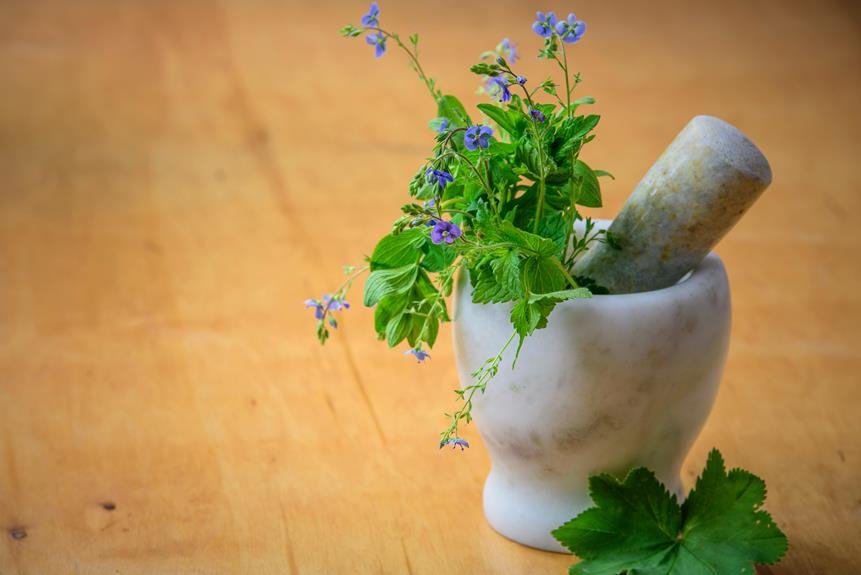When choosing between tile adhesive and thinset mortar, it boils down to your project's needs and long-term performance. Tile adhesive offers ease of use and smooth tiling but lacks the durability of thinset mortar, known for its robust bonding and longevity. Thinset excels in high-traffic areas due to its superior strength. It's your call based on factors like water resistance, adjustability for intricate layouts, and cost-effectiveness. Your choice will greatly impact your installation success. Tailor your decision to your project requirements for best outcomes. Additional insights await for a deeper understanding of each product's strengths.
A Quick Overview
- Thinset mortar offers superior bonding strength and durability for long-lasting results.
- Tile adhesive may be easier to use, but thinset mortar ensures a strong bond guarantee.
- Thinset mortar excels in water resistance, crucial for areas exposed to moisture.
- Thinset mortar provides better flexibility and adjustability for precise tile installation.
- Consider cost-effectiveness and specific project needs when choosing between tile adhesive and thinset mortar.
Characteristics of Tile Adhesive
When choosing tile adhesive for your project, consider its flexibility and bonding strength. Opt for a product that offers ease of use and guarantees a strong bond between the tiles and the surface.
The adhesive's bonding strength is vital for long-lasting results, while its ease of use will make your tiling process smoother and more efficient. Prioritize these factors to achieve a successful tile installation.
Advantages of Thinset Mortar
Consider the superior bonding strength and durability that thinset mortar offers for your tiling projects.
Thinset mortar provides excellent adhesion between tiles and surfaces, guaranteeing long-lasting results. Its ease of use makes the application process straightforward, saving you time and effort.
The robust bonding strength of thinset mortar guarantees that your tiles stay securely in place, even in high-traffic areas or environments with moisture.
Application Process for Tile Adhesive
For proper application of tile adhesive, make sure that the surface is clean and free of any debris or dust.
When applying tile adhesive, utilize appropriate techniques such as back-buttering to guarantee a strong bond.
Allow sufficient drying time as per manufacturer instructions before grouting.
Proper application techniques and adhering to specified drying times are essential for a successful tile installation using adhesive.
Mixing and Consistency of Thinset Mortar
To achieve the proper mixing and consistency of thinset mortar, start by pouring the required amount of water into a clean mixing bucket.
Add the thinset powder gradually while stirring to avoid clumps.
Use mixing techniques like folding and stirring to achieve a smooth, lump-free consistency.
Allow the mixture to rest for a few minutes before applying to guarantee ideal curing time.
Durability and Strength Comparison
When comparing tile adhesive and thinset mortar, the durability comparison and strength analysis are essential. Thinset mortar typically offers higher durability and strength due to its cementitious nature. It forms a strong bond with the substrate and tile, ensuring long-lasting results.
Tile adhesive, while suitable for certain applications, may not provide the same level of durability and strength as thinset mortar. Consider these factors when choosing the right product for your tiling project.
Water Resistance: Tile Adhesive Vs Thinset Mortar
In considering water resistance, thinset mortar generally outperforms tile adhesive due to its cementitious properties. Thinset mortar forms a stronger bond and is less susceptible to water damage over time.
Its installation techniques involve mixing with water to create a durable paste that securely holds tiles in place. This method provides better protection against moisture, making it a more reliable choice for areas prone to water exposure.
Flexibility and Adjustability
Providing versatility in installation and accommodating minor adjustments, thinset mortar offers superior flexibility and adjustability compared to tile adhesive.
With thinset mortar, you can easily adjust tile positioning before it sets, making it ideal for intricate installation techniques.
This flexibility allows for precise alignment and adjustments, ensuring a professional finish that meets your exact specifications.
Embrace the freedom to perfect your tile project with thinset mortar's adaptable nature.
Cost Considerations and Final Verdict
Consider the overall expenses associated with both tile adhesive and thinset mortar before making your final decision on which product to use for your tiling project.
In a cost analysis, tile adhesive is generally more expensive than thinset mortar, making it pricier for larger projects. However, thinset mortar might require more labor during installation, potentially balancing out the total cost.
Evaluate the installation comparison carefully to determine the most cost-effective option for your specific needs.
Frequently Asked Questions
Can Tile Adhesive Be Used for Outdoor Projects?
Yes, you can use tile adhesive for outdoor projects. It offers excellent waterproofing properties, making it suitable for such applications. Guarantee proper surface preparation for best results, and enjoy the freedom of a reliable adhesive solution for your outdoor tiling needs.
Is Thinset Mortar Suitable for Large Format Tiles?
For large format tiles, thinset mortar is ideal due to its strength and bond. It offers better grout compatibility and long-term durability. Guarantee proper installation techniques for a lasting finish. Enjoy the freedom of knowing your tiles are secure.
Can Tile Adhesive Be Used on Heated Floors?
Yes, tile adhesive is suitable for heated floors. It simplifies the installation process and is compatible with heating systems. It offers durability and efficiency, ensuring your heated floors stay securely in place for years to come.
Does Thinset Mortar Work Well With Mosaic Tiles?
When working with mosaic tiles, thinset mortar is a great choice. It offers strong adhesion and durability, ensuring your tiles stay in place. Remember to use proper grouting techniques and installation tips for a successful project.
Are There Any Environmental Considerations for Both Products?
Consider the environmental impact of tile adhesive and thinset mortar. Look for sustainability benefits like low VOC content, recycled materials, or eco-friendly production methods. Make choices that align with your values for a greener installation.


